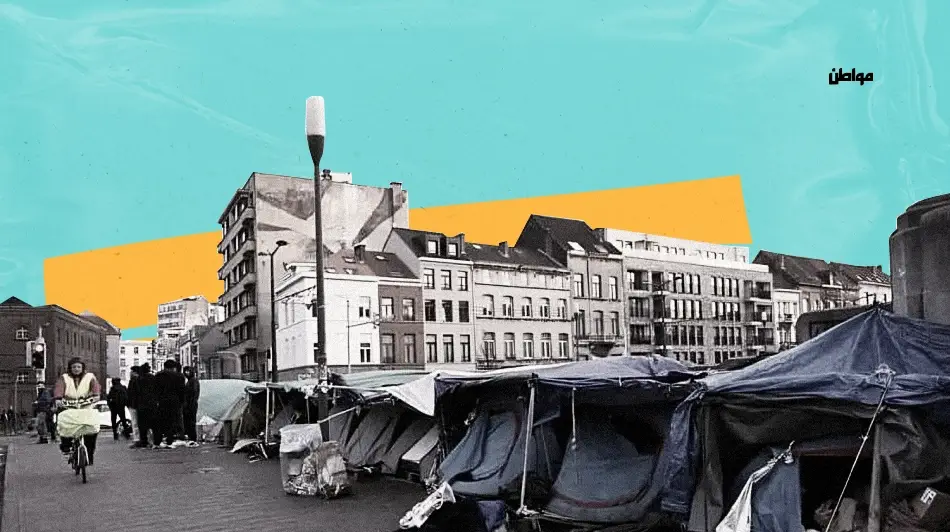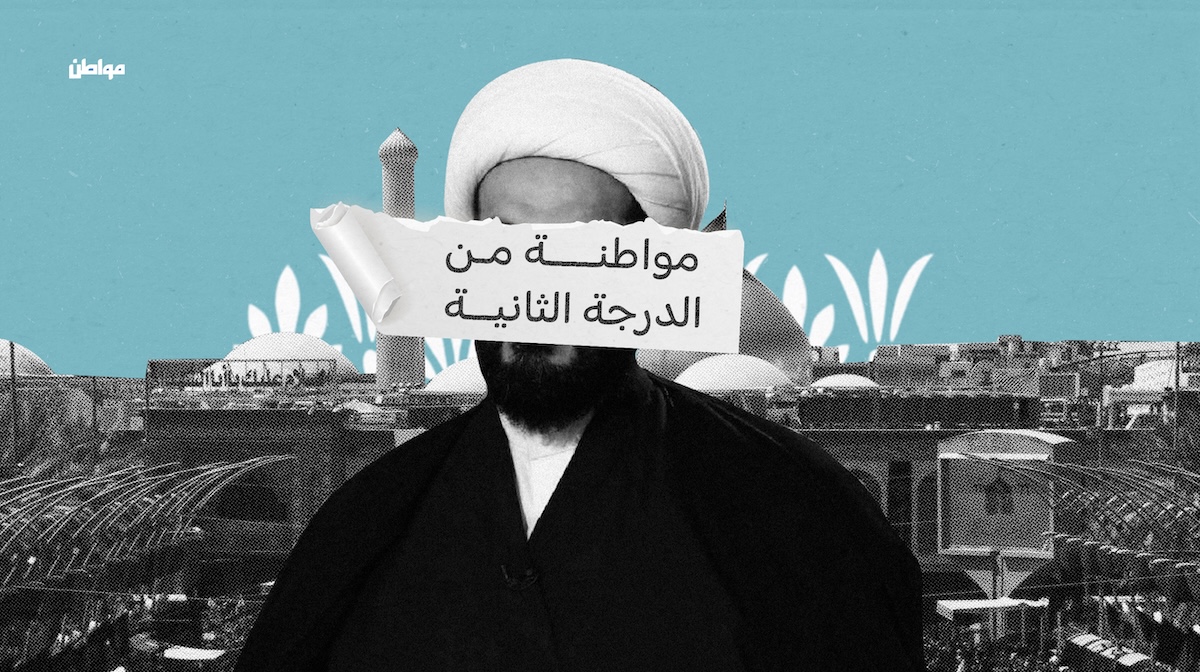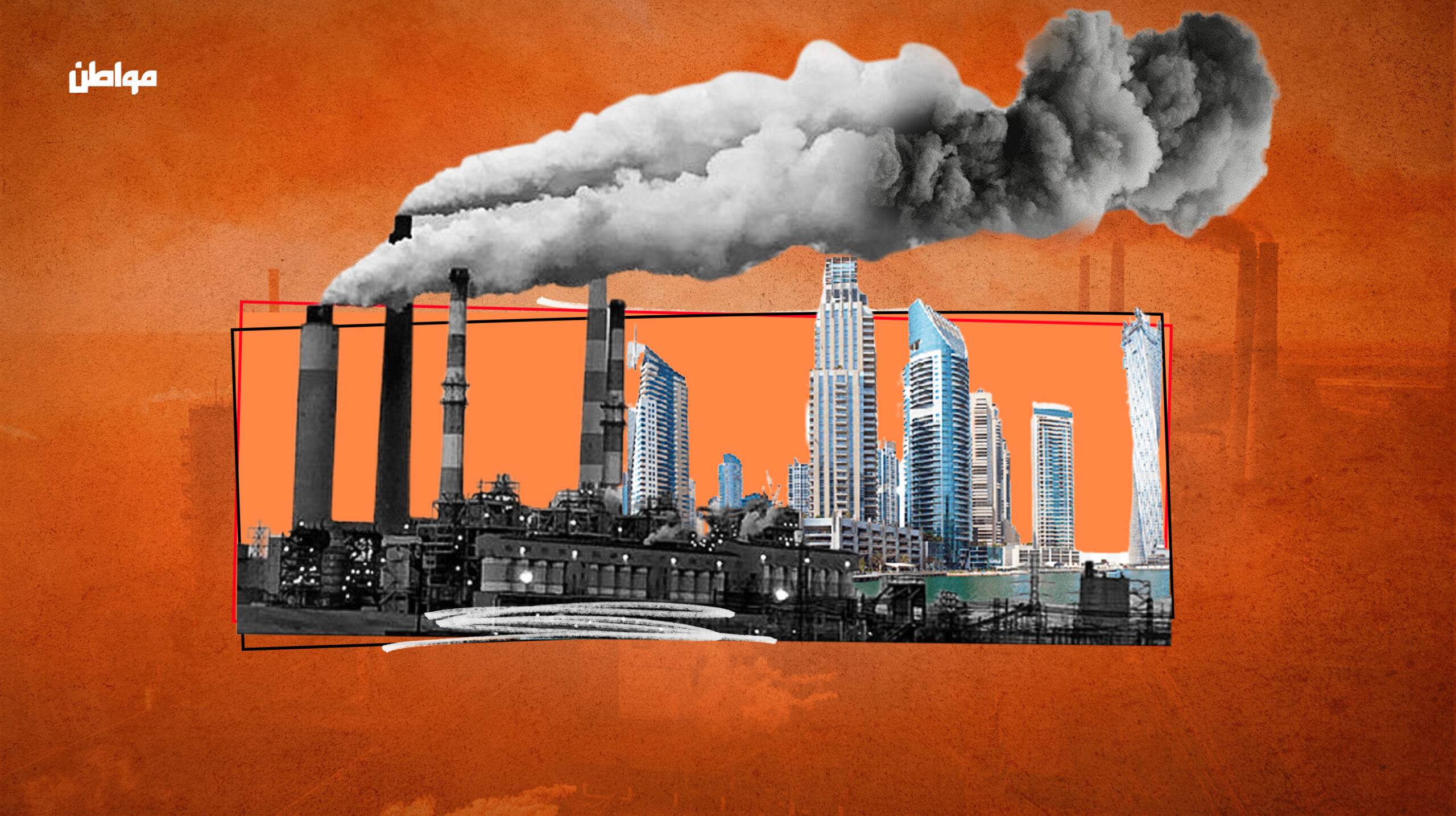When Yemeni refugee Saleh Abu Hussein (pseudonym) began his journey toward Europe, he dreamed of a dignified and stable life. He thought that reaching Europe would mark the end of the suffering that began in his country due to war and forced conscription. However, reality was far from his dreams. Saleh now feels regret for all that he endured to reach Belgium.
Saleh recounts his experience, saying: “I lived in Yemen amidst war and devastation, constantly feeling death looming at every moment. I could no longer stay there, so in 2020, I decided to migrate in search of safety. I left Yemen, passing through Sudan, Egypt, Chad, Libya, Algeria, Tunisia, and Italy, reaching France. I walked through forests on foot and crossed seas in rickety rubber boats. The cost of that painful journey was €20,000, but it cost me much more—my family and my dignity.”
Saleh’s journey was abruptly halted in Libya, where he was imprisoned while attempting to leave the country illegally. “I was detained for a year and a half, losing contact with my family, who believed I had died and held a memorial service for me. When I was released from prison, I learned that my father had passed away from grief and worry about me. That was the hardest shock of my life.”, he said.
Saleh reached Belgium in June 2023, but reality hit him differently than he had imagined. He describes his shock, saying: “I arrived in Antwerp and had to sleep on the streets because I was homeless. Sometimes organizations provided temporary shelter, but the conditions there were inhumane, lacking hygiene and safety. I was robbed twice and had to beg for food. I also felt discrimination—priority for aid was given to refugees of other nationalities, while I was left to face the cold and hunger alone.”
Saleh’s story is not unique. In the streets of Belgian cities, many refugees fleeing wars are homeless due to inadequate housing policies. This crisis goes beyond the social dimension, becoming a blatant violation of human rights, as housing is a fundamental right guaranteed by international charters such as the Universal Declaration of Human Rights, which states in Article 25 (1): “Everyone has the right to a standard of living adequate for the health and well-being of himself and his family, including food, clothing, housing, medical care, and social services.” Furthermore, the International Covenant on Economic, Social and Cultural Rights recognizes in Article 11(1): “The right of everyone to an adequate standard of living for himself and his family, including adequate food, clothing, and housing, and continuous improvement of living conditions.” Similarly, the 1951 Refugee Convention and its 1967 Protocol stipulate in Article 21 that refugees should enjoy treatment similar to that accorded to nationals regarding housing, ensuring their right to safe and suitable shelter. Belgium has signed all of these charters and agreements.
Today, Saleh lives a harsh life of homelessness, moving between temporary places without hope for stability. He says sadly: “My dream was to live in safety and peace, but that dream has become a heavy burden. I am still waiting for the day when I find the stability I have been striving for for years.”
Institutional challenges and limited initiatives
At the start of the discussion on refugee housing crises, activist Rasha Zeina, former Secretary-General of the UmbrellaRefugee Committee URC, stated that the organization has been in contact with “Fedasil,” the Belgian agency responsible for providing housing to asylum seekers, to find solutions to this crisis. She explained that the agency faces difficulties in addressing the issue due to the closure of many housing centers that were opened in 2014 and 2015.
According to data from the UN Refugee Agency (UNHCR), Belgium received over 35,000 asylum requests in 2015, whereas in 2023, Belgium recorded approximately 30,000 asylum applications, according to data from the European Council on Refugees and Exiles (ECRE) through the Asylum Information Database (AIDA). This decline in numbers indicates that the current crisis in Belgium stems from the lack of mechanisms to handle the situation rather than an increase in refugee numbers.
I was detained for a year and a half, losing contact with my family, who believed I had died and held a memorial service for me. When I was released from prison, I learned that my father had passed away from grief and worry about me. That was the hardest shock of my life.
According to Noor Swaid, founder of the “Camp” initiative for supporting refugees in housing, there is a significant shortage of permanent shelter. Thus, some humanitarian initiatives provide temporary camps, but upon their end, refugees are forced to find alternative solutions. Since camping in cities is banned, police require asylum seekers to remove their tents, leaving them exposed to sleeping outdoors, which exacerbates their physical and mental suffering.
Statistics from Bruss’Help show a record high of homelessness in Brussels, with over 5,300 homeless people in 2020, an increase of over a quarter compared to 2018. Among these, there was a noticeable rise in the number of individuals living in shelters or informal housing (krachats), with around 1,000 such cases, a 70% increase compared to 2018. Additionally, there was a significant increase in the number of children, with 933 children registered, an increase of 50% compared to previous years.
A report by Bruss’Help in collaboration with The Brussels Times indicates that 2022 saw a 20% increase compared to 2020, reflecting the worsening crisis, with the number of homeless individuals in Brussels expected to reach 10,000 this year, necessitating urgent action to address this escalating issue.
However, Bruss’Help believes the actual figure may be higher, as certain homeless populations remain invisible in statistics, such as those at risk of eviction or those living with friends and family (hidden homelessness).
Discrimination against refugees
According to UNHCR and the Commission for Refugees and Stateless Persons (CGVS/CGRA), the overall protection rate was 43.5% in 2023, meaning approximately 56.5% of asylum requests were rejected, including inadmissibility decisions affecting individuals who may have legitimate protection needs, leaving many refugees without shelter, further complicating the problem.
Data also points to discrimination among refugees. According to Asylum in Europe statistics, around 60% of Afghan asylum requests were rejected in 2023, while the percentage of rejected Russian asylum applications did not exceed 17% for the same year!
Data also points to discrimination among refugees. According to Asylum in Europe statistics, around 60% of Afghan asylum requests were rejected in 2023, while the percentage of rejected Russian asylum applications did not exceed 17% for the same year!
Elodie Haut, project officer focusing on Racial Discrimination at “Avocats Sans Frontières ” ASF, says during an interview with “Citizen” that discrimination exacerbates the refugee reception crisis in Belgium, as Ukrainian refugees are quickly provided housing and numerous facilities, while others, especially from the Middle East and Africa, face significant delays and difficulties in obtaining support. This discrimination extends beyond housing to employment and legal proceedings, reflecting preferential treatment that contradicts social justice.
While Europeans are perceived as “expats,” those from the Global South are seen as “irregular migrants,” further deepening the situation with Islamophobia, as Muslim migrants are viewed as cultural and security threats within the European context.
Haut adds that “Avocats Sans Frontières” seeks to empower refugees and victims of discrimination through ASF’s handbook and awareness sessions helping them understand their rights under Belgian law and encouraging them to claim them by reporting discriminatory practices they may both face and witness.
Migrants/Homeless
As I walked through the streets of Brussels, I met Mohammed Al-Najjar, a pseudonym, a Syrian asylum seeker who fled the horrors of war in Syria to Turkey, where he faced constant discrimination and the looming threat of deportation. In Turkey, he was forced to pay €10,500 to smugglers who promised him safe passage to Europe, only to face exploitation and violent attacks by the smugglers and brutal beatings from Turkish coast guards during his attempts to cross into Greece. Mohammed attempted to cross the sea three times, and each time, Turkish coast guards returned him violently, forcing him to sleep for nights in dangerous forests along the Turkish coast until he successfully crossed the sea in a dilapidated boat to the Greek island of Kos during his third attempt.
Mohammed’s journey continued through Greece and France before reaching Belgium in 2023. He applied for asylum, hoping to reunite with his wife left behind in Turkey, fearing for her safety during the perilous journey. However, the reality was harsh; Mohammed found himself homeless, moving between streets and bridges in Brussels under the bitter cold.
Another asylum seeker, Maher Ali, a pseudonym, a Palestinian refugee who fled Gaza, told Muwatin about his experiences: “My journey began in August 2023. I paid $450 to cross into Egypt and then continued to Turkey. I first reached Istanbul, then to Bodrum. There, I lost all my possessions, including my mobile phone, and was arrested while attempting to illegally cross the Greek border. I was fined 14,500 Turkish lira, approximately €500, and detained for six days before being deported to another Turkish province. I returned to Bodrum, attempting to cross again, and eventually managed to reach the Greek island of Kos. There, I was held in a closed camp for 30 days in harsh conditions, feeling like a prisoner. Upon release, I continued my journey to Belgium, where I found myself homeless once again.”
Maher sought help from several humanitarian organizations for stable housing but to no avail. He shared, “I contacted Fedasil but received no response. Later, I registered at the Hub and was allocated a bed in a camp for only 28 days. After that, I was forced to leave and return to homelessness.”
At the same time, Maher’s wife and three children await him in Palestine. He continues his struggle to reunite with his family in Belgium. Their situation back home is even more dire, enduring ongoing war and living in a ruined building without basic services. His children live in constant fear of bombings and struggle daily to secure food and water amid a suffocating blockade.
Housing is a fundamental human need and is considered one of the basic levels in Maslow’s hierarchy. The impact of homelessness is severe. In a country like Belgium, housing is essential due to the harsh climate conditions. The threat of homelessness causes stress and anxiety.
Another Syrian refugee, Rawan Al-Manasi, met during awareness sessions on racial discrimination organized by the Refugee Committee in collaboration with Lawyers Without Borders on November 28-29, 2024, spoke to Muwatin about her experience with discrimination: “I arrived in Belgium in 2014 after fleeing the war in Syria. While I have rebuilt my life, completed my university studies, have a job, and can rent a home, I still face discrimination. Many landlords hold prejudices against Arab and Muslim refugees, and unfortunately, this applies to me as well. I have reached out to landlords who expressed interest in renting their properties, only for them to change their behavior upon seeing my hijab, making excuses to refuse the lease, like saying someone else arrived just minutes before me and agreed to rent the property. This is unjust, and legal measures must be taken to protect refugees from discrimination. Despite my education and work, I am threatened with homelessness each time my rental contract ends.”
The psychological impact of homelessness
Psychologist Erwin Van Ouffel, a trauma specialist, spoke to Muwatin about its effects: “Housing is a fundamental human need and is considered one of the basic levels in Maslow’s hierarchy. The impact of homelessness is severe. In a country like Belgium, housing is essential due to the harsh climate conditions. The threat of homelessness causes stress and anxiety. The moment a person becomes homeless, it can be a traumatic shock, and prolonged homelessness assaults our psychological defenses. Increased stress exacerbates existing negative tendencies (which vary from person to person), such as anxiety, depression, anger, and even psychosis. Stress must be understood as a cumulative effect. When it exceeds a certain threshold, individuals begin to exhibit negative reactions. This is significant because we never know what someone has endured, and a single event could be the ‘straw that broke the camel’s back.’”
Regarding the harm caused by discrimination, both on the individual and societal level, Van Ouffel added: “When people feel discriminated against, it impacts their sense of justice, regardless of whether they are objectively right or not. While most people attempt to adapt to a certain degree of discrimination, some may begin to feel alienated from society and blame individual or institutional discrimination for their exclusion. This can lead to withdrawal from society, and in extreme cases, hatred toward the community. When a person feels that their self-fulfillment has been completely thwarted and has a strong sense of injustice, they may take action against society. Particularly when individuals are psychologically burdened and lose control over their actions (e.g., developing psychosis), irrational behavior may emerge.”
The stories of refugees in Belgium paint a harrowing picture of living under inhumane conditions, far from the stability and security they sought. As refugees continue to face these harsh challenges—from bitter cold to discriminatory treatment—it underscores the urgent need for comprehensive and immediate solutions to the housing crisis for asylum seekers, ensuring their basic rights are upheld. It is imperative that efforts from government institutions and human rights organizations converge to provide a better future for these individuals, where their “new home” becomes a haven rather than another burden on their arduous journey of suffering.
This story was produced in partnership with YoCoJoin, under the supervision of Mahmoud ElSobky, with funding from the European Union as part of the Creative Europe programs.







